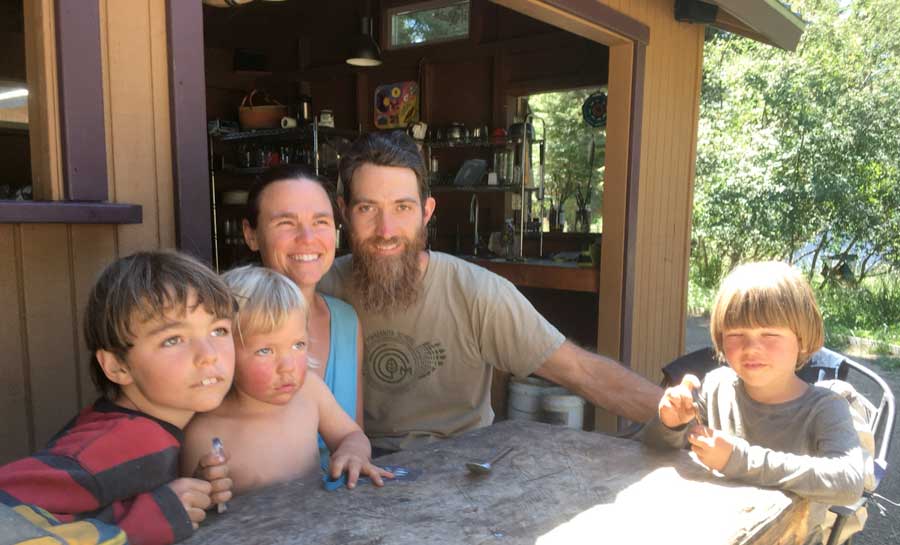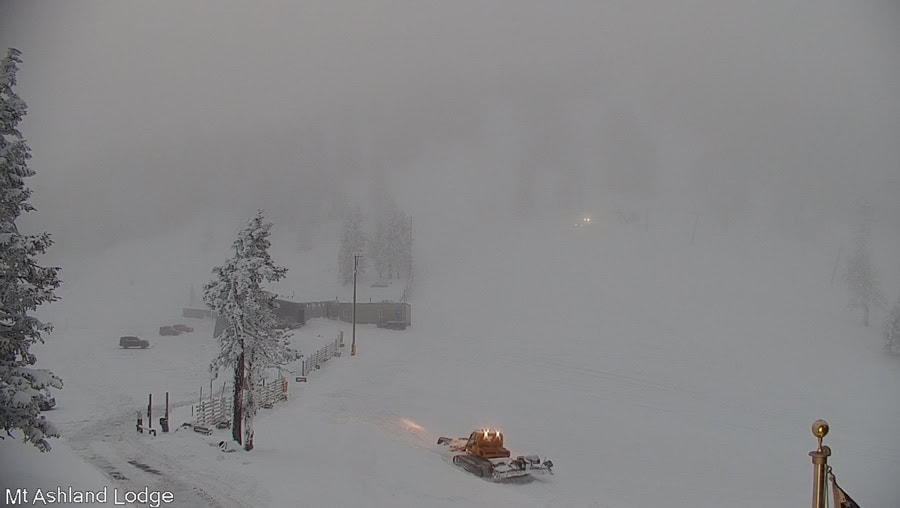Why the City Council needs to approve a stronger policy
By Richard Barth
Climate change is an environmental, financial, and social justice issue. We will continue to see significant and worsening impacts right here in Ashland with irrigation district shutdowns, fires, extreme high temperatures and smoky summers. The economic impact of climate change is both immediate and long-term.
In a recent Study Session with the City Council, the Climate Policy Commission laid out a strategy for reducing the use of “natural” gas in Ashland city-owned facilities, consistent with the city’s “Climate and Energy Action Plan” (CEAP).

Approved by the City Council in 2017 and embedded in City Ordinance 9.40, the CEAP lays out climate goals for the city operations and the community. City operations must be carbon neutral by 2030, and the city must reduce its fossil fuel consumption by 50% by 2030 and 100% by 2050.
To achieve these goals, the Climate Policy Commission is advising the City to navigate a path off “natural” gas — because it is a major driver of climate change. “Natural” gas is primarily methane; when burned it produces greenhouse gasses and other pollutants that affect indoor and outdoor air quality.
In the past decade, studies have shown that there is substantial methane leakage everywhere from the wells where the gas is fracked, through the pipes that carry it to our homes, and from the appliances before combustion. These leaked methane emissions have approximately 86 times the climate impact over 20 years as carbon dioxide. With this amount of leakage, “natural” gas is definitely not a bridge to a clean energy future. To the contrary: It is no better than coal.
The use of “natural” gas is also a profound equity issue. Inadequately vented gas stoves contribute to poor indoor air quality that contributes to asthma and other respiratory illnesses — even when the stoves are not in use. People who need to work outdoors are exposed to negative health risks through high temperature and poor air quality. If we don’t rein in our greenhouse gas emissions, these problems will continue to get worse, and will disproportionately affect our most vulnerable residents.
Despite our climate goals, Ashland’s “natural” gas usage is moving in the wrong direction. Community natural gas consumption increased 10% in 2020, compared to 2015, and the average number of gas meters in Ashland increased 5% in 2020, compared to 2015. In the winters of 2019 and 2020, Ashland’s “natural” gas combustion emissions peaked at about 12,000 metric tons of carbon dioxide equivalents.
However, if Ashland were fully electrified, our peak winter “natural” gas emissions would be only about 600 metric tons — a 20-fold reduction! That’s the level of impact we need to achieve at this point in our race to make changes before it’s too late.
We need a planned approach
Ashland has had an administrative policy in place for several years that restricts the installation of “natural gas” infrastructure, but the policy is not nearly strong enough. It needs more specificity, and exceptions should require council approval so the community has a chance to weigh in.
Here are just a few reasons why the City Council needs to approve a stronger policy:
- If the city continues to install new “natural” gas equipment, we lock in decades of greenhouse gas emissions and expose the city to the likelihood of “natural” gas price fluctuations.
- Future regulatory changes such as carbon pricing or outright prohibitions on greenhouse gas emissions will further increase our costs.
- Utilizing “natural” gas in new construction violates the CEAP code.
Replacing “natural” gas appliances such as boilers, furnaces, water heaters, cooktops, and ovens with electric alternatives requires advance planning. Electric service may need to be upgraded, which can take time. Wiring, tubing, and ducts may need to be installed. With planning, the city can lower the cost of switching and may be able to tap into external funding sources.
The good news is that case studies show that all-electric buildings can be more affordable than buildings using both gas and electricity.
Based on CPC’s recommendation, the City Council asked staff to draft a resolution or ordinance generally prohibiting new “natural” gas equipment in city facilities. Council also asked staff to bring a plan to phase out existing “natural” gas equipment in city facilities by 2030 or estimate the offset costs for equipment that won’t be electrified by 2030. The plan should also identify funding sources and financing approaches to minimize the cost to the Ashland community.
The city can change its current and future use of “natural” gas and, by doing so, demonstrate how to combat climate change in both the public and private sector at the local, regional, statewide, and national level.
We need this kind of climate action leadership from our City Council.
Richard Barth served until this month as Chair of the City of Ashland Climate Policy Commission. The CPC is a citizen’s commission appointed by the Mayor that oversees the implementation of Ashland’s Climate & Energy Action Plan. There is currently an opening on the Commission for Ashland residents who want to help accelerate climate action by the City of Ashland; to apply submit the form found at https://www.ashland.or.us/SIB/files/Commission_Committee_APP.pdf . For more information about the Commission visit https://www.ashland.or.us/CCBIndex.asp?CCBID=268. Learn more about phasing out “natural” gas use in Ashland by visiting ElectrifyAshlandNow.org.



















